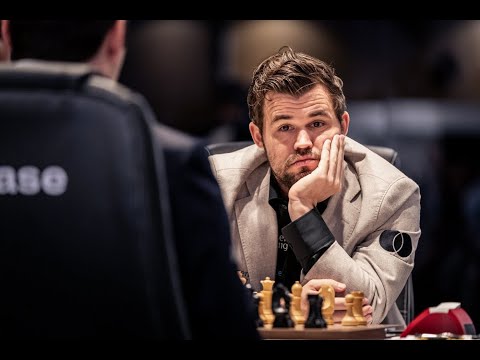In the hallowed, often silent halls of elite chess, one name consistently reverberates with a peculiar blend of awe and exasperation: Magnus Carlsen. For years, the Norwegian grandmaster has been the undisputed monarch of the 64 squares. Yet, an intriguing paradox now defines his reign: he keeps winning, even when he claims he doesn`t particularly care for the format. His recent triumph at Norway Chess 2025 is not just another trophy; it`s a testament to a level of genius that transcends mere motivation, a phenomenon that continues to confound opponents and fascinate observers.
The Burden of Brilliance
Imagine being so exceptionally good at something that the primary challenge is no longer external competition, but the fight against your own boredom. This seems to be Carlsen`s current predicament with classical chess. He has openly expressed his dwindling interest, even going so far as to suggest he might reconsider his future in the traditional format. One might assume such declarations would signal an opening for hungry challengers, a momentary chink in the armor of the world`s highest-rated player. One would be, as it turns out, profoundly mistaken.
The Norway Chess tournament, a prestigious event drawing the crème de la crème of the chess world, unfolded as a grand stage for this very paradox. While other top players, including the reigning world champion, were meticulously plotting their paths to victory, Carlsen entered with a rather un-champion-like disposition. His aim, he suggested, was less about the specific title and more about a categorical statement: “the world of chess has one king.” A subtle, almost defiant reminder that even when he allows others to wear the crown of World Champion, the true seat of power remains unequivocally his.
The Storm in a Teacup: A Glimpse of Fire
This tournament, however, was not without its moments of dramatic introspection. A rare, raw display of emotion erupted after his round six loss to the formidable young talent D. Gukesh. Carlsen, having blundered a winning position into a losing one, slammed the table, uttered a frustrated “oh my God,” and then, in a gesture of sportsmanship often overlooked, apologized to Gukesh before storming out. This wasn`t merely a loss; it was a personal affront to his own exacting standards. For Carlsen, a defeat, especially one self-inflicted from a winning position, is not just a point dropped, but a flaw in the matrix of his own unparalleled understanding.
It was a telling incident, a brief crack in the stoic facade, revealing the fierce competitive fire that still rages beneath the veneer of indifference. Crucially, Carlsen didn`t lose another classical game throughout the remainder of the tournament. It was as if the momentary lapse had served as a sharp, albeit unwelcome, reminder of his own capabilities and the standards he implicitly holds himself to. It seems the only thing more formidable than a motivated Magnus Carlsen is a Magnus Carlsen who is temporarily annoyed with himself.
Carlsen vs. Carlsen: The Ultimate Rivalry
His commentary post-tournament cemented this narrative. After securing the win in the final round, he remarked,
“The dream of playing a really good tournament burst with that game (the loss to Gukesh in Round 6)… I wanted a score that reflects the fact I think I`m still significantly better at chess and since I couldn`t achieve that, a potential win of the tournament would not mean as much.”
Such a statement might sound arrogant from anyone else, but from Carlsen, it is simply an objective assessment. His internal benchmark for “good” is so impossibly high that even winning a top-tier tournament is tempered by a single, self-perceived imperfection.
Indeed, for Carlsen, the ultimate adversary is not the player across the board, but the version of himself that falls short of his own idealized perfection. This “Carlsen vs. Carlsen” dynamic is what truly sets him apart. Other players aspire to defeat him; he simply strives not to defeat himself. And in that, he often succeeds, even when ostensibly “not having fun.”
The Unwilling Monarch`s Continued Reign
The final rounds of Norway Chess provided yet another glimpse into this unique genius. In his game against Arjun Erigaisi, Carlsen navigated an almost perfect game from his opponent for 34 moves. Then, in a blink, within just six moves, he transformed a losing position into a winning one. The commentators, seasoned experts in the game, were left speechless, marveling at his uncanny ability to conjure victories from the jaws of defeat, coordinating his pieces with an understanding that borders on the clairvoyant.
Magnus Carlsen’s victory at Norway Chess 2025 is a resounding echo of his enduring greatness. It serves as a stark reminder that even a grandmaster who questions the very point of playing classical chess, one whose motivation often stems from an internal battle against his own boredom, remains utterly superior to every challenger. Whether he wants the crown or not, Carlsen continues to wear it, cementing his legacy as arguably the greatest chess player to have ever lived – a king who dominates not just by skill, but by a sheer, almost accidental, force of genius.

